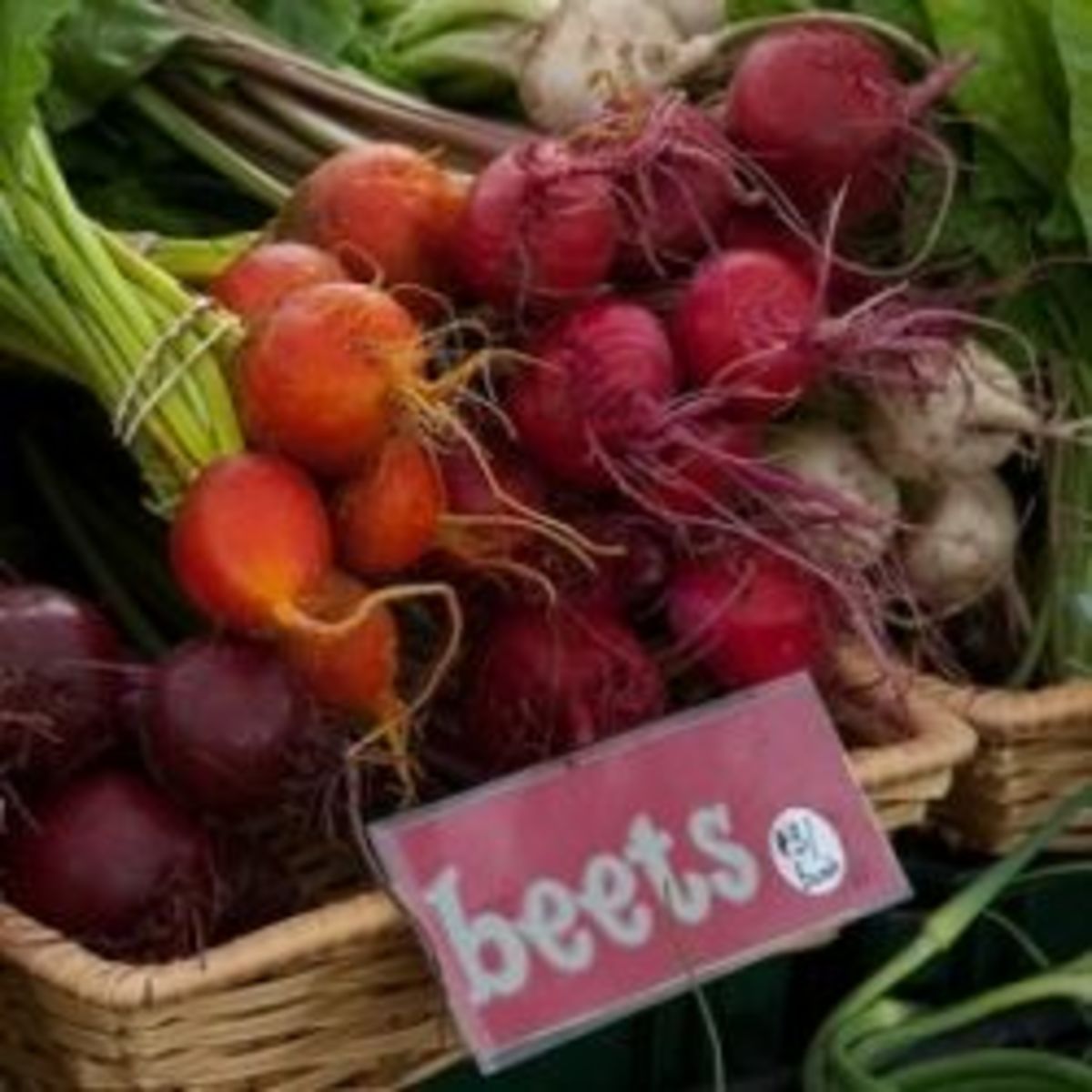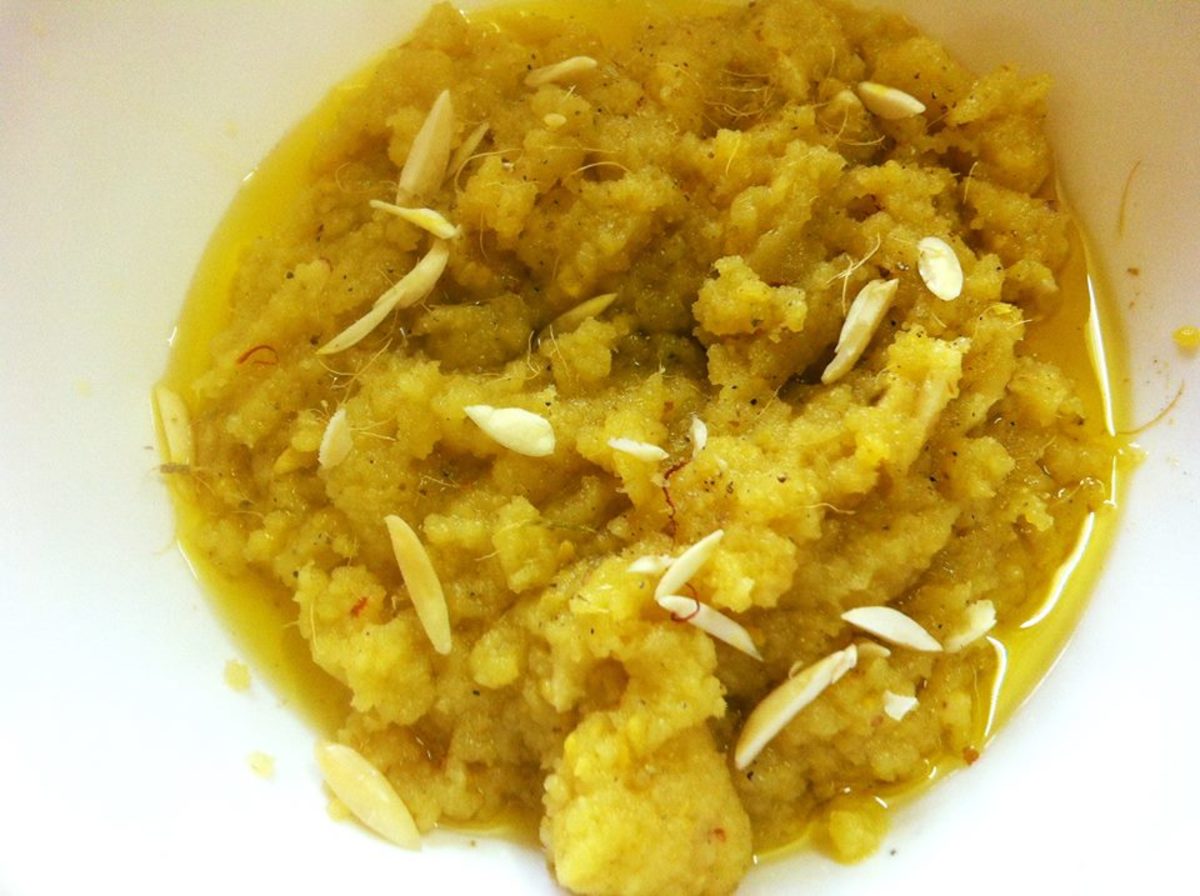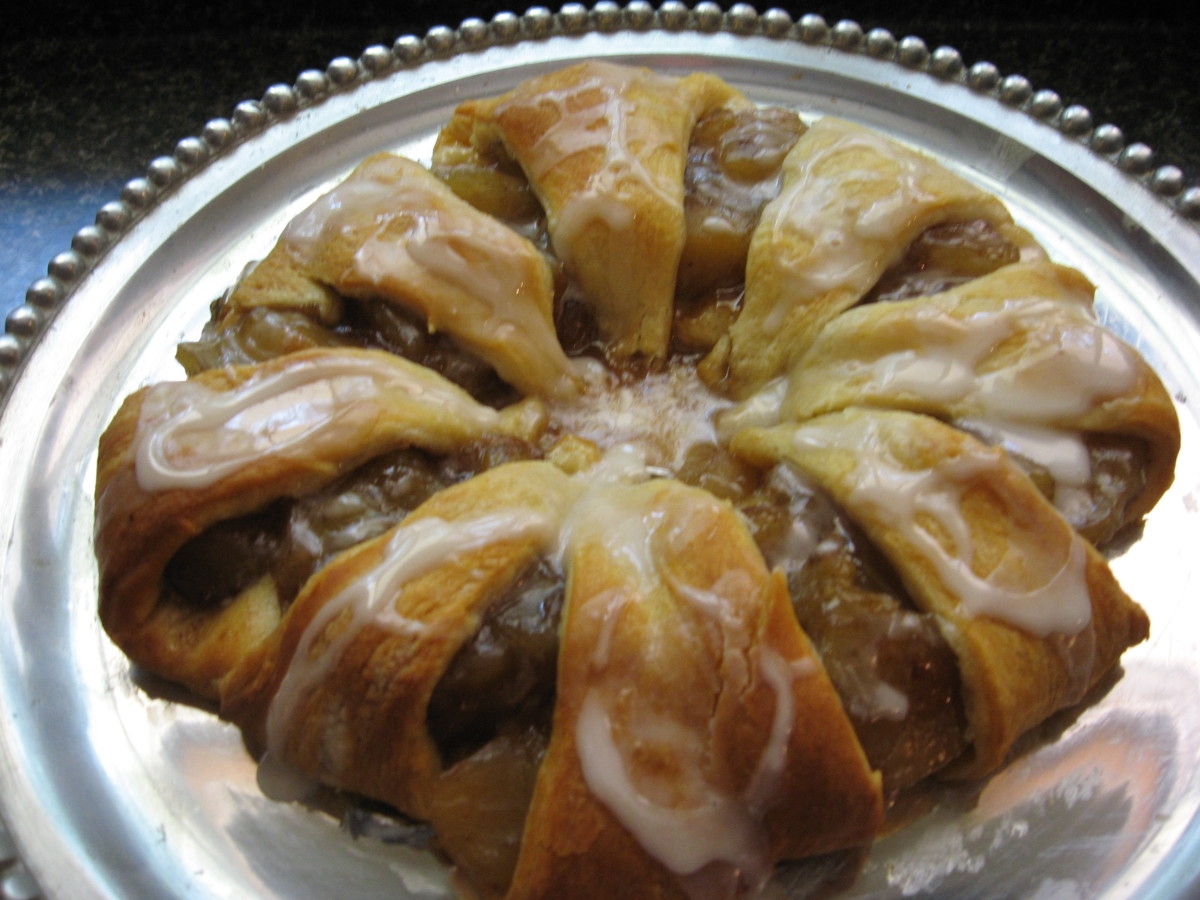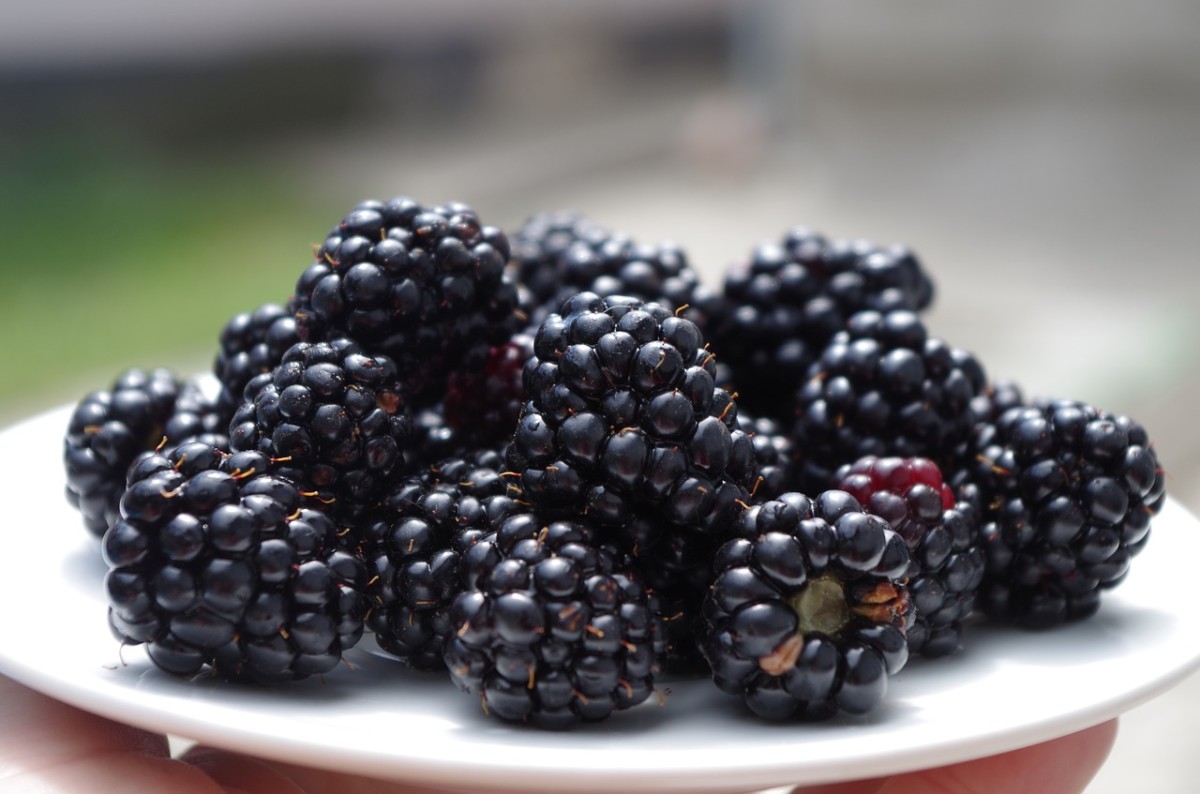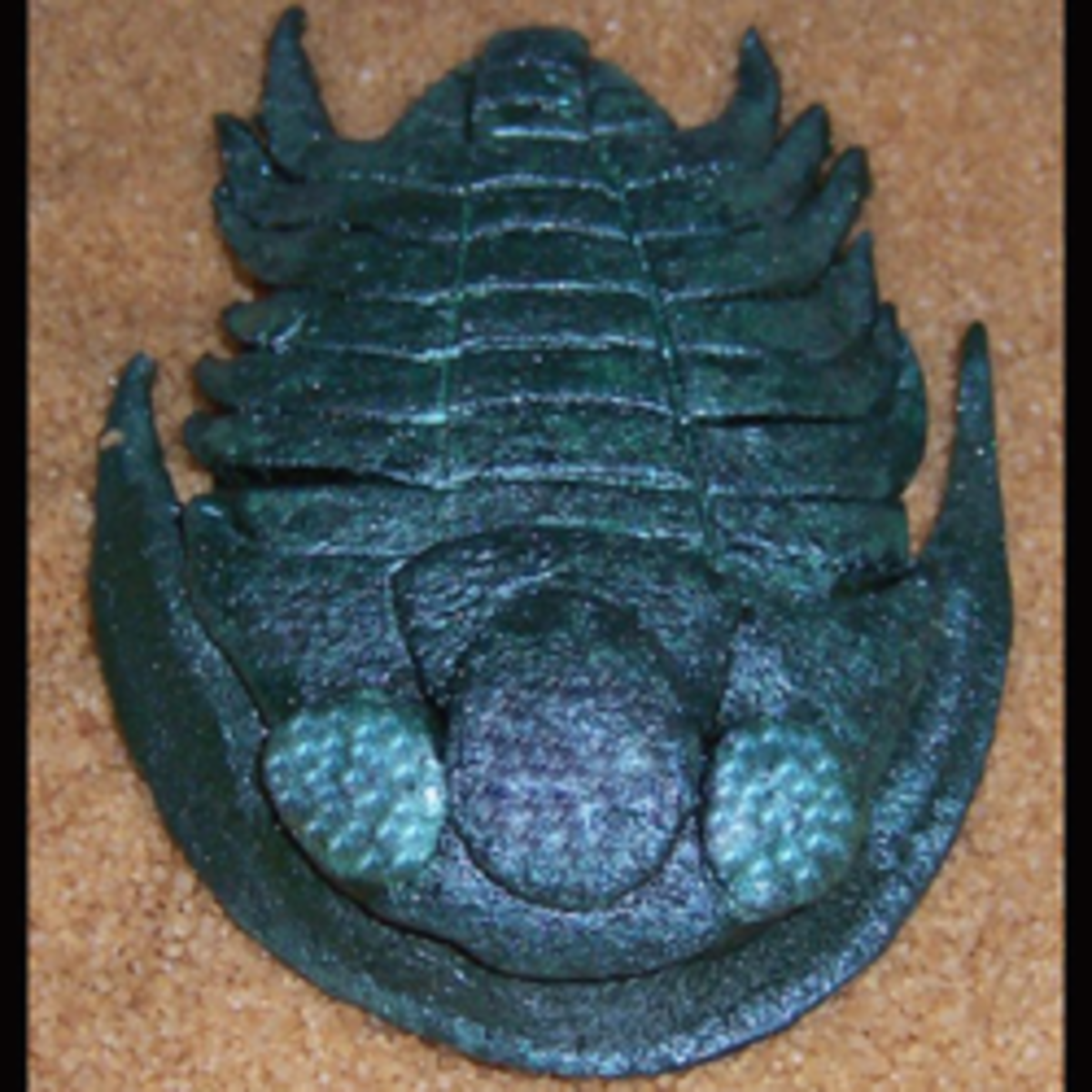Beetroot Desserts: Beetroot Halwa Recipe
Beetroot Halwa is a Quick and Easy Dessert
Beetroot halwa is a mouthwatering sweet dish served in India on happy occasions and festivals. Children like this dessert because of its vibrant color. Old people relish this sweet dish because of its smooth and creamy texture.
Eating beetroot halwa has many health benefits. Beetroot is a rich source of nutrients and minerals that are helpful for our bodies. Due to high fiber content, beetroot helps in digestion and prevents constipation.
Beetroot is one of the vegetables that help in maintaining ideal body weight. A certain antioxidant found in beetroot, Alpha-lipoic acid, is known to lower blood glucose levels and increase insulin sensitivity in patients with diabetes.
Choline is an important nutrient found in beetroot that helps with sleep, muscle movement, and carrying nerve impulses to the brain. It is known to reduce chronic inflammation. Beetroot juice improves muscle power in heart patients.
Make beetroot halwa occasionally and eat it for good health. Preparing it with natural sugar like jaggery adds more benefits.
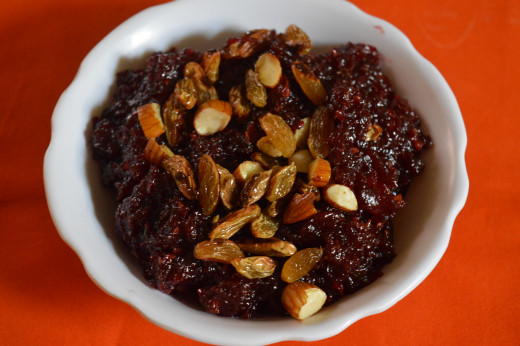
Ingredients
- 1 1/2 heaped cups beetroot, grated
- 1/3 cup sugar, or 1/4 cup powdered jaggery
- 1/2 cup milk
- 4 teaspoons milk cream, fresh or frozen
- 5 cardamom, crushed
- 1/4 teaspoon vanilla essence, optional, I used
- 2 teaspoons ghee
- 10 pieces cashew nuts
- 15 raisins
- 6 almonds, sliced
Instructions
- Wash beetroot, remove the skin, and grate it. Add milk. Cook it up to two whistles in a pressure cooker. Keep aside. This process helps to lessen the cooking time. If you don't want to do this, you can cook it straight away.
- Heat ghee in a deep bottomed pan. Saute cashew nuts, cardamom, and raisins for 15-20 seconds on low flame or until they become crispy. Remove them and collect them on a plate. Let the remaining ghee be in the pan.
- Add semi-cooked beetroot-milk mixture to the pan. Increase the flame to medium-high. Cook it for 5-6 minutes while stirring occasionally.
- Add sugar and milk cream. Mix well. Continue the cooking until the water evaporates completely.
- Add cardamom powder, vanilla essence, roasted cashew nuts, almonds, and raisins (keeping a few for garnishing). By this time, the beetroot becomes a little gummy. Remove on a serving bowl.
- Garnish it with roasted dry nuts and raisins. Enjoy eating this dessert anywhere and any time!
Photo Guide
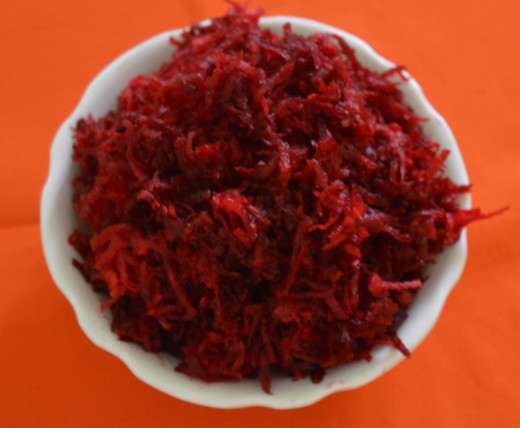
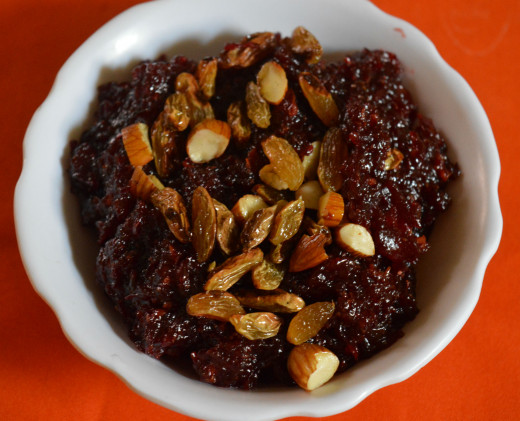
Nutritional Information
| Nutrition Facts | |
|---|---|
| Serving size: 1 | |
| Calories | 174 |
| Calories from Fat | 36 |
| % Daily Value * | |
| Fat 4 g | 6% |
| Carbohydrates 16 g | 5% |
| Sugar 8 g | |
| Fiber 1 g | 4% |
| Sodium 3 mg | |
| * The Percent Daily Values are based on a 2,000 calorie diet, so your values may change depending on your calorie needs. The values here may not be 100% accurate because the recipes have not been professionally evaluated nor have they been evaluated by the U.S. FDA. | |

